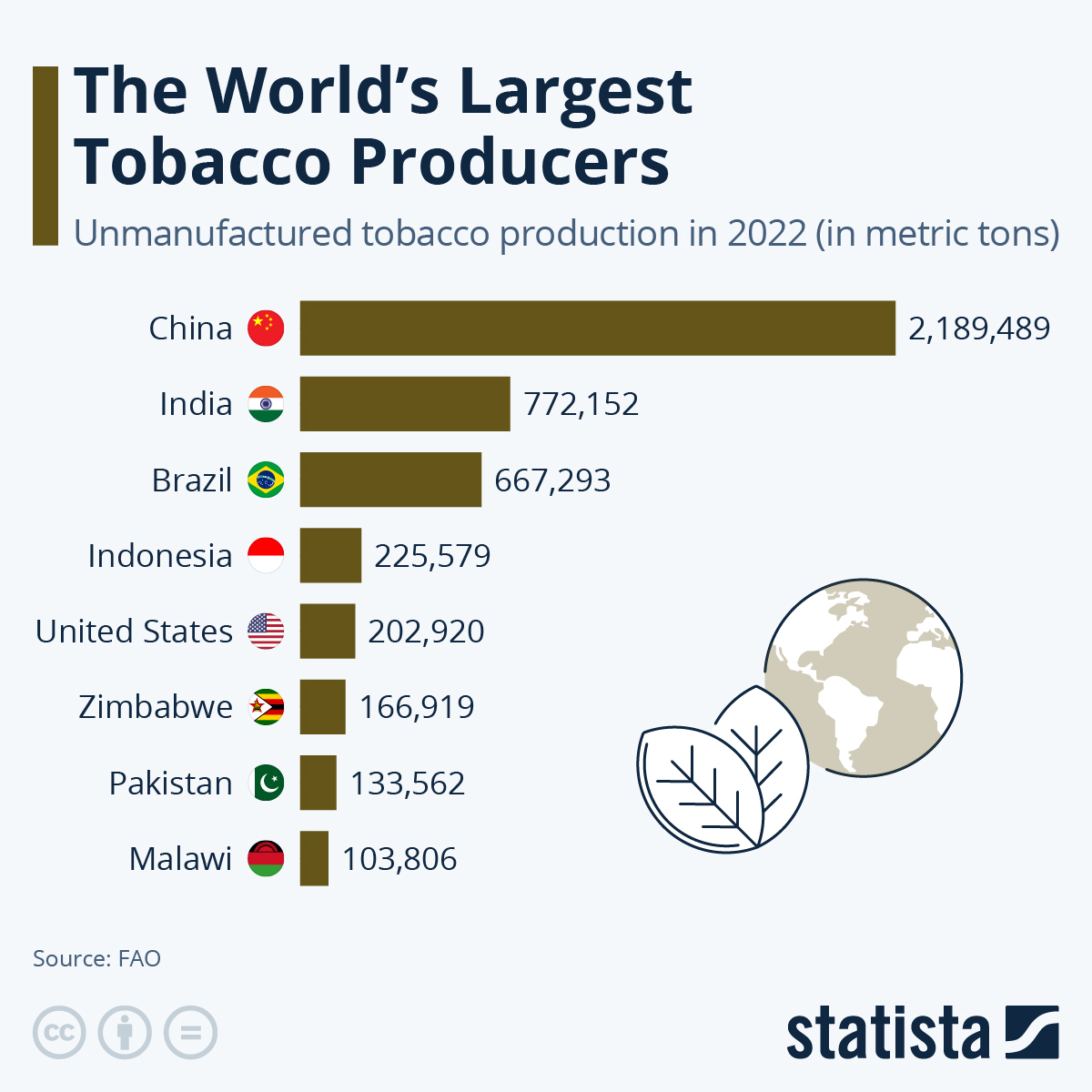Raw tobacco production is a huge industry. In 2022 alone, around 5.8 million tons of tobacco were produced worldwide, roughly a third of which was in China. According to data from the UN’s Food and Agriculture Organization, India is the world’s second biggest raw tobacco producer, followed by Brazil, with around 0.8 million tons and 0.7 million tons of unmanufactured tobacco produced that year, respectively. Indonesia, one of countries with the highest smoking prevalence, is also a major producer, alongside the U.S. and Zimbabwe.
The World Health Organization has declared the tobacco epidemic to be one of the biggest public health threats the world has ever faced, responsible for the deaths of more than 7 million people from direct tobacco use and a further 1.3 million from second-hand smoke inhalation. In addition to this, the organization states that tobacco is a threat to food insecurity and is harmful to farmers who handle it, exposing them to chemical pesticides and tobacco smoke, leading to chronic lung conditions and nicotine poisoning. For this reason, the WHO has called on governments to end tobacco growing subsidies and to instead support farmers to switch to more sustainable crops that help improve food security and nutrition. “By choosing to grow food instead of tobacco, we prioritize health, preserve ecosystems, and strengthen food security for all”, said Dr. Tedros Adhanom Ghebreyesus, WHO director-general in a statement in 2023.










